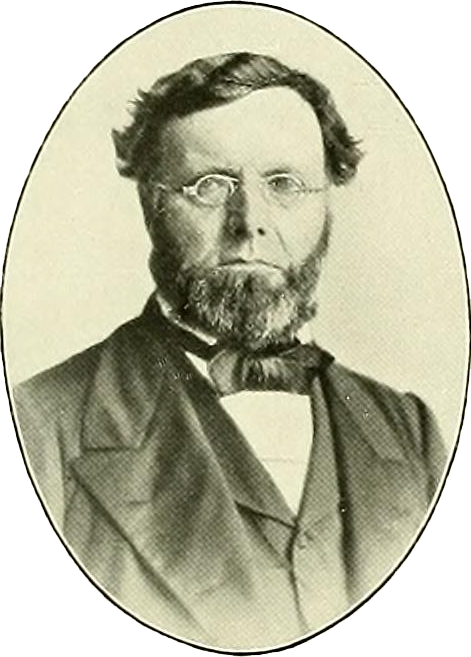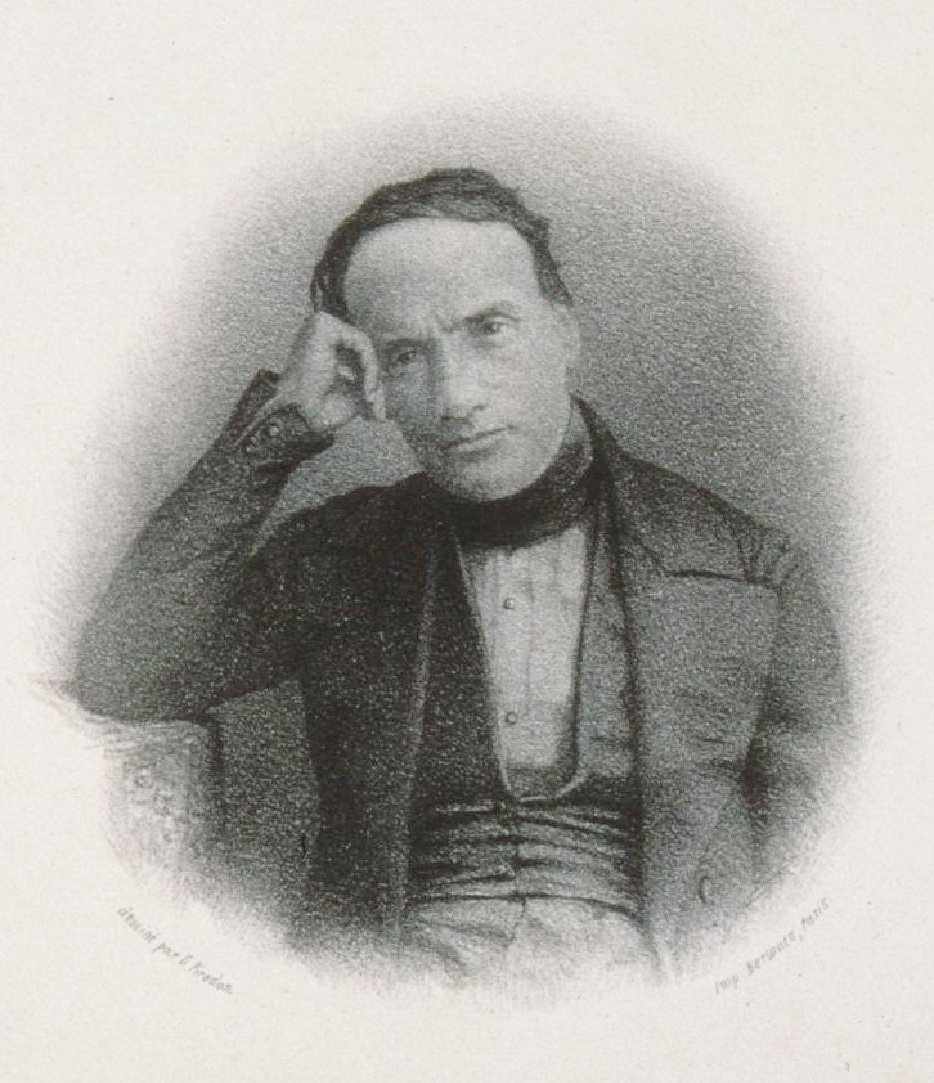|
Friedrich Wilhelm Schultz
Friedrich Wilhelm Schultz (3 January 1804 – 30 December 1876) was a German pharmacist and botanist who was a native of Zweibrücken. He initially learned the pharmacy profession at his father's store in Zweibrücken. In 1827 be began studies in Munich, later performing post-doctoral work in Tübingen. In 1832 he became owner of a pharmacy in Bitsch, where he started 1836 his famous exsiccata series ''Flora Galliae et Germaniae exsiccata, herbier des plantes rares et critiques de la France et de l' Allemagne, recueillies par la Société de la Flore de France et d' Allemagne, publié par le docteur F. G. Schultz''. In 1853 he relocated to Weissenburg. There he started the exsiccata ''Herbarium normale. Herbier des plantes nouvelles peu connues et rares d' Europe principalement de France et d' Allemagne publié par F. Schultz''. Schultz was a specialist regarding the botanical family Orobanchaceae. One of his better known publications was a book on Palatinate flora called ... [...More Info...] [...Related Items...] OR: [Wikipedia] [Google] [Baidu] |
Pharmacist
A pharmacist, also known as a chemist in English in the Commonwealth of Nations, Commonwealth English, is a healthcare professional who is knowledgeable about preparation, mechanism of action, clinical usage and legislation of medications in order to dispense them safely to the public and to provide consultancy services. A pharmacist also often serves as a primary care provider in the community and offers services, such as health screenings and immunizations. Pharmacists undergo university or graduate-level education to understand the biochemical mechanisms and actions of drugs, drug uses, therapeutic roles, side effects, potential drug interactions, and monitoring parameters. In developing countries, a diploma course from approved colleges qualifies one for pharmacist role. This is mated to anatomy, physiology, and pathophysiology. Pharmacists interpret and communicate this specialized knowledge to patients, physicians, and other health care providers. Among other licensing ... [...More Info...] [...Related Items...] OR: [Wikipedia] [Google] [Baidu] |
Palatinate (region)
The Palatinate (; ; Palatine German language, Palatine German: ''Palz''), or the Rhenish Palatinate (''Rheinpfalz''), is a historical region of Germany. The Palatinate occupies most of the Southern Germany, southern quarter of the German States of Germany, federal state of Rhineland-Palatinate (''Rheinland-Pfalz''), covering an area of with about 1.4 million inhabitants. Its residents are known as Palatines (''Pfälzer''). Geography The Palatinate borders Saarland in the west, historically also comprising the state's Saarpfalz-Kreis, Saarpfalz District. In the northwest, the Hunsrück mountain range forms the border with the Rhineland region. The eastern border with Hesse and the Baden-Württemberg, Baden region runs along the Upper Rhine river, while the left bank, with Mainz and Worms, Germany, Worms as well as the Selz basin around Alzey, belong to the Rhenish Hesse region. In the south, the German-France, French border separates the Palatinate from Alsace. One-thir ... [...More Info...] [...Related Items...] OR: [Wikipedia] [Google] [Baidu] |
1876 Deaths
Events January * January 1 ** The Reichsbank opens in Berlin. ** The Bass Brewery Red Triangle becomes the world's first registered trademark symbol. *January 27 – The Northampton Bank robbery occurs in Massachusetts. February * February 2 ** The National League (baseball), National League of Professional Base Ball Clubs is formed at a meeting in Chicago; it replaces the National Association of Professional Base Ball Players. Morgan Bulkeley of the Hartford Dark Blues is selected as the league's first president. ** Third Carlist War (Spain): Battle of Montejurra – The new commander General Fernando Primo de Rivera marches on the remaining Carlist stronghold at Estella-Lizarra, Estella, where he meets a force of about 1,600 men under General Carlos Calderón, at nearby Montejurra. After a courageous and costly defence, Calderón is forced to withdraw. * February 14 – Alexander Graham Bell applies for a U.S. patent for the telephone, as does Elisha Gray. * Februa ... [...More Info...] [...Related Items...] OR: [Wikipedia] [Google] [Baidu] |
1804 Births
Events January–March * January 1 – Haiti gains independence from France, and becomes the first black republic. * February 4 – The Sokoto Caliphate is founded in West Africa. * February 14 – The First Serbian uprising begins the Serbian Revolution. By 1817, the Principality of Serbia will have proclaimed self-rule from the Ottoman Empire, the first nation-state in Europe to do so. * February 15 – New Jersey becomes the last of the northern United States to abolish History of slavery in New Jersey, slavery. * February 16 – First Barbary War: Stephen Decatur leads a raid to burn the pirate-held frigate at Tripoli, Libya, Tripoli to deny her further use by the captors. * February 18 – Ohio University is chartered by the Ohio General Assembly. * February 20 – Hobart is established in its permanent location in Van Diemen's Land (modern-day Tasmania) as a British penal colony. * February 21 – Cornwall, Cornishman Richard Trevithick's newly built ''Penydarren' ... [...More Info...] [...Related Items...] OR: [Wikipedia] [Google] [Baidu] |
German Pharmacists
German(s) may refer to: * Germany, the country of the Germans and German things **Germania (Roman era) * Germans, citizens of Germany, people of German ancestry, or native speakers of the German language ** For citizenship in Germany, see also German nationality law **Germanic peoples (Roman era) *German diaspora * German language * German cuisine, traditional foods of Germany People * German (given name) * German (surname) * Germán, a Spanish name Places * German (parish), Isle of Man * German, Albania, or Gërmej * German, Bulgaria * German, Iran * German, North Macedonia * German, New York, U.S. * Agios Germanos, Greece Other uses * German (mythology), a South Slavic mythological being * Germans (band), a Canadian rock band * "German" (song), a 2019 song by No Money Enterprise * ''The German'', a 2008 short film * "The Germans", an episode of ''Fawlty Towers'' * ''The German'', a nickname for Congolese rebel André Kisase Ngandu See also * Germanic (disambiguati ... [...More Info...] [...Related Items...] OR: [Wikipedia] [Google] [Baidu] |
Rheinland-Pfalz
Rhineland-Palatinate ( , ; ; ; ) is a western state of Germany. It covers and has about 4.05 million residents. It is the ninth largest and sixth most populous of the sixteen states. Mainz is the capital and largest city. Other cities are Ludwigshafen am Rhein, Koblenz, Trier, Kaiserslautern, Worms, and Neuwied. It is bordered by North Rhine-Westphalia, Saarland, Baden-Württemberg and Hesse and by France, Luxembourg and Belgium. Rhineland-Palatinate was established in 1946 after World War II, from parts of the former states of Prussia (part of its Rhineland and Nassau provinces), Hesse ( Rhenish Hesse) and Bavaria (its former outlying Palatinate kreis or district), by the French military administration in Allied-occupied Germany. Rhineland-Palatinate became part of the Federal Republic of Germany in 1949 and shared the country's only border with the Saar Protectorate until the latter was returned to German control in 1957. Rhineland-Palatinate's natural and cultural her ... [...More Info...] [...Related Items...] OR: [Wikipedia] [Google] [Baidu] |
Carl Heinrich "Bipontinus" Schultz
Carl Heinrich Schultz (30 June 1805 – 17 December 1867) was a German physician and botanist, and a brother to botanist Friedrich Wilhelm Schultz (1804–1876). He is referred to as Carl Heinrich "Bipontinus" Schultz, Carl Heinrich Schultz Bipontinus or just Bipontinus, this being a Latinized reference to his birthplace Zweibrücken (Two Bridges). This was necessary because there lived in his lifetime another German botanist of the same name, known as Carl Heinrich "Schultzenstein" Schultz. Biography From 1825 he studied medicine and sciences at the University of Erlangen, where he was a student of botanist Wilhelm Daniel Joseph Koch. In 1827 he continued his education at the University of Munich, where his influences included the naturalist Maximilian Perty. In 1830 he took a study trip to Paris, and after his return, settled into a medical practice in Munich. From 1832 to 1835 he was imprisoned for political reasons, and after his release, spent many years working as a physic ... [...More Info...] [...Related Items...] OR: [Wikipedia] [Google] [Baidu] |
Paul Constant Billot
Paul Constant Billot (12 March 1796 – 19 April 1863) was a French botanist born in Rambervillers. He studied at the University of Strasbourg, subsequently leaving school due to illness. From 1830 he worked as a civil servant (conductor of ''ponts et chaussées''), earning his bachelor's degree a few years later. From 1834 to 1861 he taught classes in physics and natural history in Haguenau. With botanist Friedrich Wilhelm Schultz (1804–1876), he was co-author of ''Archives de la flore de France et d'Allemagne''. Billot's ''Annotations a la flore de France et d'Allemagne'' (1855) was added by the distribution of the exsiccata series ''Flora Galliae et Germaniae exsiccata'' (1846-1861), a work which after his death in 1863 was continued by other scientists under the title ''Flora exsiccata de C. Billot, continué par V. Bavoux, A. Guichard, P. Guichard et J. Paillot'' or "Billotia".Triebel, D. & Scholz, P. 2001–2024 ''IndExs – Index of Exsiccatae''. – Botanische Staatssamml ... [...More Info...] [...Related Items...] OR: [Wikipedia] [Google] [Baidu] |
Orobanchaceae
Orobanchaceae, the broomrapes, is a family (biology), family of mostly parasitic plants of the order (biology), order Lamiales, with about 90 genus, genera and more than 2000 species. Many of these genera (e.g., ''Pedicularis'', ''Rhinanthus'', ''Striga'') were formerly included in the family Scrophulariaceae ''sensu lato''. With its new circumscription, Orobanchaceae forms a distinct, monophyletic family. From a phylogenetic perspective, it is defined as the largest crown clade containing ''Orobanche major'' and relatives, but neither ''Paulownia tomentosa'' nor ''Phryma leptostachya'' nor ''Mazus japonicus''. The Orobanchaceae are annual plant, annual herbaceous plant, herbs or perennial plant, perennial herbs or shrubs, and most (all except ''Lindenbergia'', ''Rehmannia'' and ''Triaenophora'') are parasitic plant, parasitic on the roots of other plants—either holoparasitic or hemiparasitic (fully or partly parasitic). The holoparasitic species lack chlorophyll and therefore ... [...More Info...] [...Related Items...] OR: [Wikipedia] [Google] [Baidu] |
Botanist
Botany, also called plant science, is the branch of natural science and biology studying plants, especially Plant anatomy, their anatomy, Plant taxonomy, taxonomy, and Plant ecology, ecology. A botanist or plant scientist is a scientist who specialises in this field. "Plant" and "botany" may be defined more narrowly to include only land plants and their study, which is also known as phytology. Phytologists or botanists (in the strict sense) study approximately 410,000 species of Embryophyte, land plants, including some 391,000 species of vascular plants (of which approximately 369,000 are flowering plants) and approximately 20,000 bryophytes. Botany originated as history of herbalism#Prehistory, prehistoric herbalism to identify and later cultivate plants that were edible, poisonous, and medicinal, making it one of the first endeavours of human investigation. Medieval physic gardens, often attached to Monastery, monasteries, contained plants possibly having medicinal benefit. ... [...More Info...] [...Related Items...] OR: [Wikipedia] [Google] [Baidu] |
Wissembourg
Wissembourg (; South Franconian: ''Weisseburch'' ; German: ''Weißenburg'' ) is a commune in the Bas-Rhin department in Grand Est in northeastern France. Wissembourg was a sub-prefecture of the department until 2015. The name ''Wissembourg'' is a Gallicized version of ''Weißenburg (Weissenburg)'' in German meaning "white castle". The Latin place-name, sometimes used in ecclesiastical sources, is ''Sebusium''. The town was annexed by France after 1648 but then incorporated into Germany in 1871. It was returned to France in 1919, but reincorporated back into Germany in 1940. After 1944 it again became French. Geography Wissembourg is situated on the little river Lauter close to the border between France and Germany approximately north of Strasbourg and west of Karlsruhe. The Wissembourg station offers rail connections to Strasbourg, Haguenau and Landau (Germany). History Weissenburg (later Wissembourg) Abbey, the Benedictine abbey around which the town has grown, ... [...More Info...] [...Related Items...] OR: [Wikipedia] [Google] [Baidu] |
Exsiccata
Exsiccata (Latin, ''gen.'' -ae, ''plur.'' -ae) is a work with "published, uniform, numbered set[s] of preserved specimens distributed with printed labels". Typically, exsiccatae are numbered collections of dried herbarium Biological specimen, specimens or preserved biological sample (material), samples published in several duplicate sets with a common theme or title, such as ''Lichenes Helvetici exsiccati'' (see figure). Exsiccatae are regarded as scientific contributions of the editor(s) with characteristics from the library world (published booklets of scientific literature, with authors/ editing, editors, titles, often published in Serial (publishing), serial publications like journals and magazines and in Serial_(literature), serial formats with fascicles) and features from the herbarium world (uniform and numbered collections of duplicate herbarium specimens). Exsiccatae works represent a special method of scholarly communication. The text in the printed matters/published book ... [...More Info...] [...Related Items...] OR: [Wikipedia] [Google] [Baidu] |






